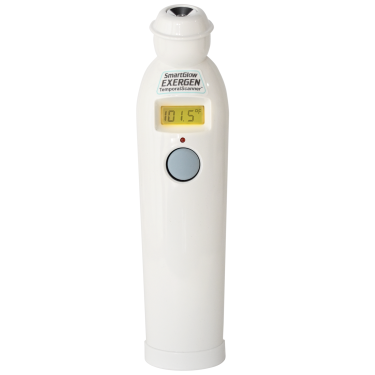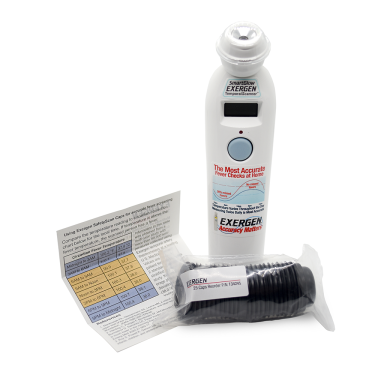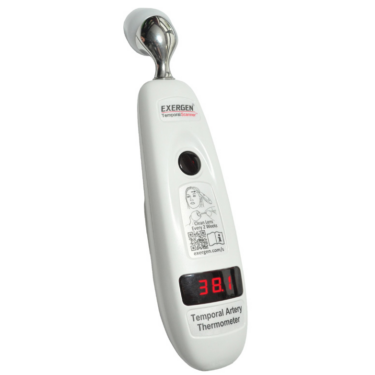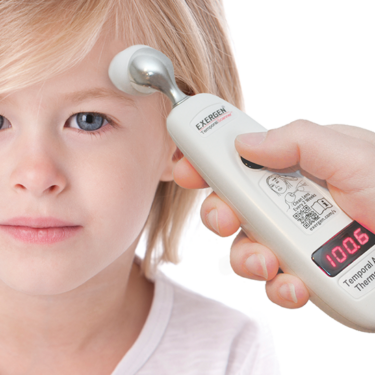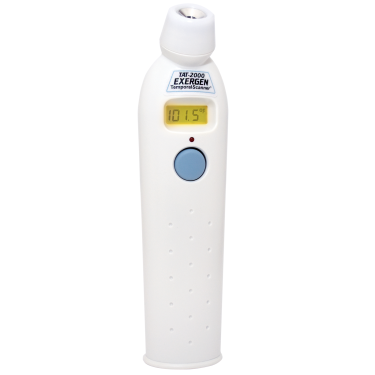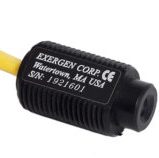Exergen TemporalScanner Demonstrates Emergency Departments Effective in Detecting Influenza Outbreaks
WATERTOWN, Mass., April 26, 2016 (GLOBE NEWSWIRE) — A new study affirms that temperature measurement taken with the Exergen Temporal Artery Thermometer (TAT) is a potential surveillance tool for febrile disease that could complement current disease surveillance systems. Hospital emergency departments increasingly act as gateways for the evaluation and treatment of acute illnesses, such as pandemics and seasonal illnesses.
In this new study, conducted in the Emergency Department at Beth Israel Deaconess Medical Center in Boston, TAT’s were used at initial triage vital signs and automatically logged temperature measurements over the course of two years including the autumn-winter wave of the 2009-2010 H1N1 (swine flu) pandemic and the 2010-2011 seasonal flu outbreak. The H1N1 influenza peak and the seasonal flu peak were detected as 5.6% and 6.6% average weekly fever rate respectively compared to a year round average of 2.6% fevers. A total of 71,865 body temperatures were collected and included in the analysis, 2,073 of which were fevers. Emergency departments are a crucial location for measuring and monitoring temperature, and procedures taken there afford the opportunity to detect possible outbreaks or illnesses in a community.
“Fever is the most common symptom associated with infectious diseases, including influenza, and is a key indicator of illness as a part of routine clinical care and emergency care,” said Dr. Francesco Pompei, Ph.D., CEO of Exergen Corporation. “Equipping Emergency Departments with wireless enabled TemporalScanners will lead to accurate detection of pandemic influenza outbreaks in the shortest possible time, providing public health officials with the best opportunity to stop the spread of the disease.”
The study notes that it might also be suitable for monitoring febrile disease activity in schools, workplaces and transportation hubs, since temperature can be easily measured by non-experts. “Exergen’s TemporalScanners, backed by more than 60-peer reviewed published clinical studies covering all patient ages and all settings, are used everywhere and can provide the needed data,” added Dr. Pompei.
ABOUT EXERGEN CORPORATION
Exergen manufactures and markets two models of the TemporalScanner thermometer: a professional version for doctors’ offices and hospitals, and a consumer model sold in major retailers nationwide. Nearly two billion temperatures are taken each year with Exergen TemporalScanners, in thousands of hospitals, clinics and pediatricians’ offices across the country, as well as in millions of homes. It is the #1 preference of pediatricians, nurses, and mothers and is the #1 selling retail thermometer. The Exergen TemporalScanner’s performance is supported by more than 60 peer-reviewed published studies covering all ages from preterm infants to geriatrics, and all care areas from hospitals to homes. For additional information, visit www.exergen.com. Bordonaro et al., Human temperatures for syndromic surveillance in the emergency department: data from the autumn wave of the 2009 swine flu (H1N1) pandemic and a seasonal influenza outbreak. BMC Emergency Medicine (2016)
Contact:
Melissa Rubin
Rosica Public Relations
melissa@rosica.com
P: 201.843.5600
F: 201.843.5680
95 Route 17 South, Suite 202
Paramus, New Jersey 07652
